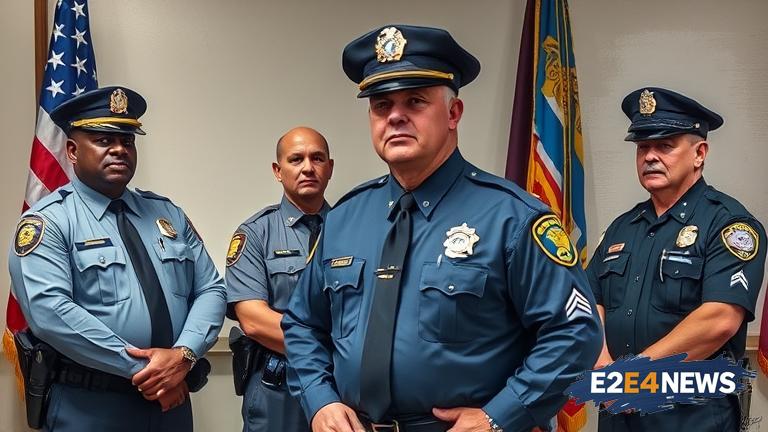Roberto Bryan, the newly appointed police chief of Fayetteville, has outlined his strategy to address the rising issue of youth crime in the city. According to Bryan, the key to reducing youth crime lies in building strong relationships between law enforcement and the community. He emphasized the importance of trust and communication in preventing young people from turning to crime. Bryan also highlighted the need for a multi-faceted approach, involving not only law enforcement but also social services, education, and community organizations. He noted that the city’s youth are its most valuable resource, and it is essential to provide them with opportunities and support to help them thrive. Bryan’s strategy includes increasing community outreach and engagement, particularly in high-crime areas, and working with local schools to identify and support at-risk youth. He also plans to expand the police department’s mentorship programs and establish partnerships with local businesses and organizations to provide job training and employment opportunities. Furthermore, Bryan aims to improve the police department’s response to youth crime, focusing on prevention and intervention rather than simply enforcement. He believes that by working together, the city can reduce youth crime and create a safer, more prosperous community for all. Bryan’s approach has been welcomed by community leaders, who see it as a positive step towards addressing the root causes of youth crime. However, some have expressed concerns about the need for more resources and funding to support the new strategy. Despite these challenges, Bryan remains committed to his vision, citing the city’s reputation as ‘America’s Can-Do City’ as a source of inspiration. He believes that with determination and collaboration, Fayetteville can become a model for effective youth crime prevention. The city’s residents are eagerly awaiting the implementation of Bryan’s strategy, hoping that it will bring about positive change and a reduction in youth crime. As the new police chief, Bryan is under pressure to deliver results, but his enthusiasm and dedication to the cause have generated a sense of optimism among the community. With his comprehensive approach and commitment to community engagement, Bryan is poised to make a significant impact on the city’s youth crime problem. The success of his strategy will depend on the ability of the police department, community organizations, and local government to work together towards a common goal. Ultimately, the fate of Fayetteville’s youth and the city’s future prosperity hang in the balance, making Bryan’s mission a critical one.
